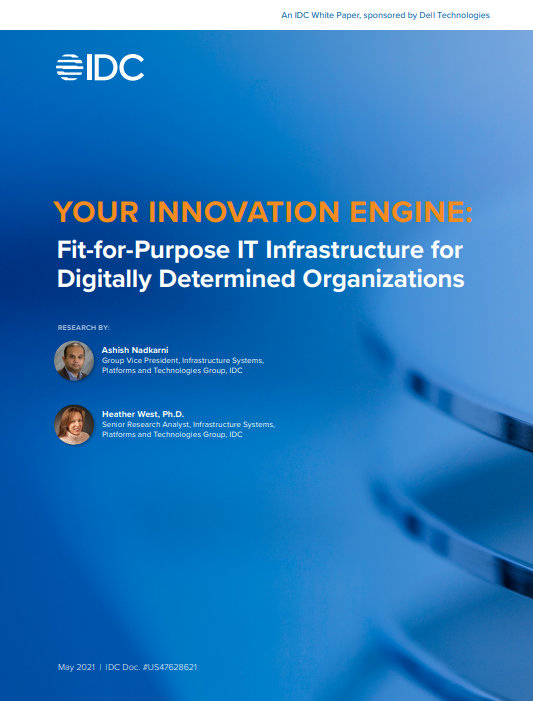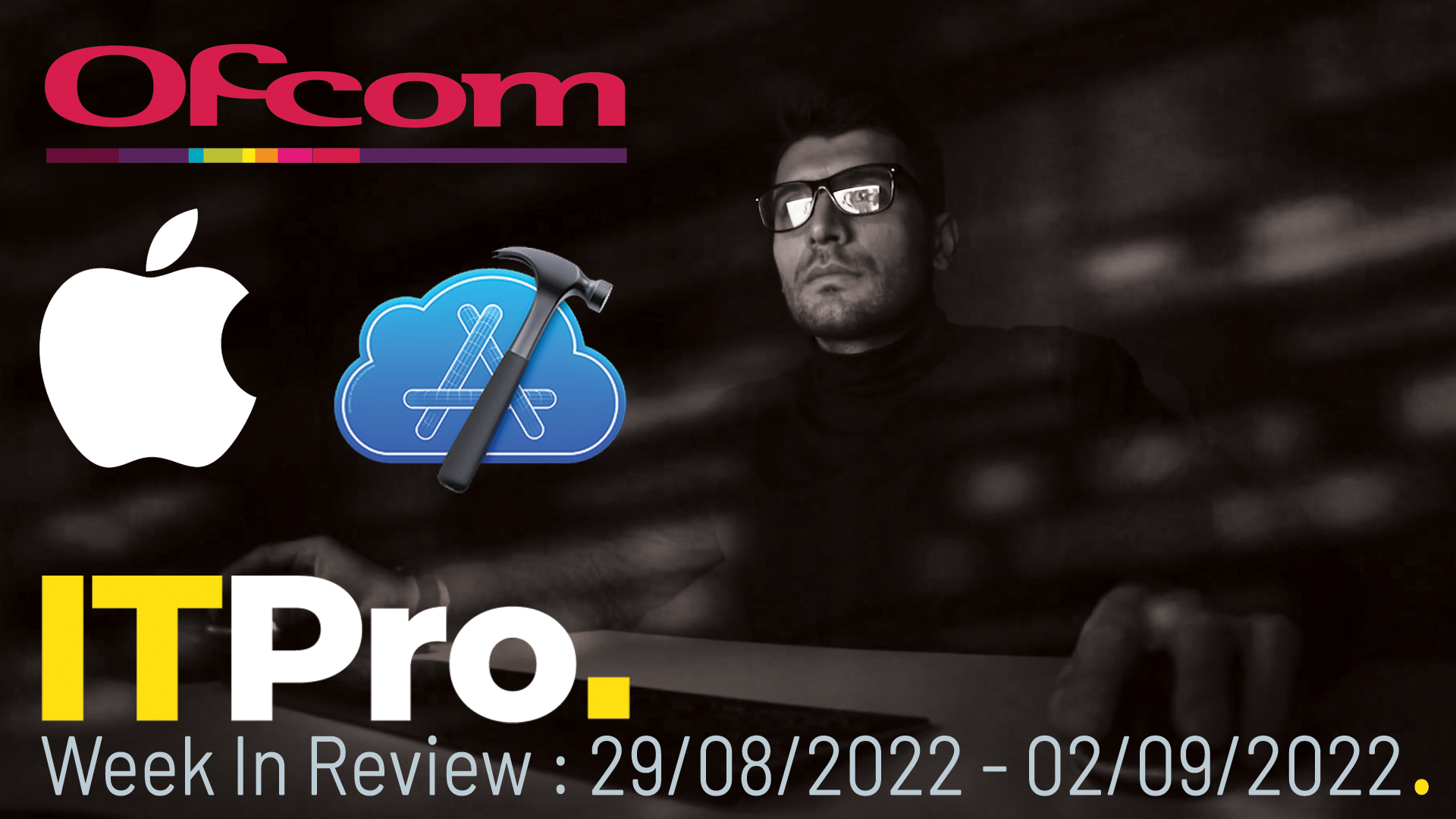Q&A: Chris Taylor, CIO at NI
Mark Samuels speaks to News International's CIO about the changing nature of modern tech leadership.


Sign up today and you will receive a free copy of our Future Focus 2025 report - the leading guidance on AI, cybersecurity and other IT challenges as per 700+ senior executives
You are now subscribed
Your newsletter sign-up was successful
"I've had a fun career but I've never seen things change as quickly as they have at this business as they have in the past 18 months," he says. Taylor's role now is to continue helping the business to transform through the use of digital technology. Luckily, he is positioned at the fulcrum of change.
Consumerisation is already happening, whether you like it or not. Get on board and help drive digital change or you could risk your IT becoming rapidly out-of-date.
Taylor works alongside News Corp CTO Paul Cheesbrough, who was formerly News International CIO. Cheesbrough is helping to split the business into two separate entities based around TV and film, and print and digital. As we talk in News International's Wapping headquarters, Taylor points to a roadmap on his wall that plans out the immediate digital future of the business.
"It's stacked full of programmes," he says, referring to the wall chart. "There's so much willingness to invest in IT to help drive change. Our challenge here is to deliver to the business's demands." His first priority is to help Cheesbrough with strategic planning activities and to create the types of cross-business collaborations that make sure good ideas in one area of the organisation can be seeded somewhere else.
His second area of focus is the creation of digital products. News International's titles are being launched on tablet devices and Taylor is investigating various operating platforms. "There has been a lack of standardisation but HTML5 is allowing content to be created once and pushed to multiple platforms," he says. "As an organisation, we don't just want to be a consumer of technology. We're also leading the development of digital products."
One key area for product development includes News International's commitment to a media pay wall for online customers. Taylor is keen to investigate how cloud-based technologies can be used to authenticate users and provide quick access to content. "We need something that's fast and scalable," he says.
Taylor's third priority area is a major programme to transform the newsroom. He's been given a blank sheet to create a state-of-the art newsroom, with specialist use of consumer IT. News International has introduced an ownership scheme, where employees are given 200 towards the purchase of a device. More than 700 iPads have been purchased through the scheme so far and support for the continued development of IT consumerisation has come from technology specialist Jigsaw24.
Another of Taylor's innovations comes in the form of a dedicated room near the company canteen. Inspired by Apple's Genius Bar, News International has introduced a technology area that allows employees to play with gadgets and apps from various suppliers. "Trying to get your staff to engage with a MacBook is the not really a giant leap forwards," he says, suggesting that most employees will already have access to smart computing technology outside the workplace.
Sign up today and you will receive a free copy of our Future Focus 2025 report - the leading guidance on AI, cybersecurity and other IT challenges as per 700+ senior executives
Taylor is not just an Apple evangelist. He encourages other CIOs to take an open approach, to move beyond the traditional IT suppliers and to think about innovative firms, like Amazon, Google and Salesforce. "Consumerisation is already happening, whether you like it or not," says Taylor. "Get on board and help drive digital change or you could risk your IT becoming rapidly out-of-date."

Mark Samuels is a freelance writer specializing in business and technology. For the past two decades, he has produced extensive work on subjects such as the adoption of technology by C-suite executives.
At ITPro, Mark has provided long-form content on C-suite strategy, particularly relating to chief information officers (CIOs), as well as digital transformation case studies, and explainers on cloud computing architecture.
Mark has written for publications including Computing, The Guardian, ZDNet, TechRepublic, Times Higher Education, and CIONET.
Before his career in journalism, Mark achieved a BA in geography and MSc in World Space Economy at the University of Birmingham, as well as a PhD in economic geography at the University of Sheffield.
-
 AWS CEO Matt Garman isn’t convinced AI spells the end of the software industry
AWS CEO Matt Garman isn’t convinced AI spells the end of the software industryNews Software stocks have taken a beating in recent weeks, but AWS CEO Matt Garman has joined Nvidia's Jensen Huang and Databricks CEO Ali Ghodsi in pouring cold water on the AI-fueled hysteria.
-
 Deepfake business risks are growing
Deepfake business risks are growingIn-depth As the risk of being targeted by deepfakes increases, what should businesses be looking out for?
-
 Protecting CIOs' IT budgets is "paramount" in maintaining business growth
Protecting CIOs' IT budgets is "paramount" in maintaining business growthNews If CIOs are forced to make emergency budget cuts, they should also explain the risks to high level stakeholders so the responsibility is shared
-
 The IT Pro Podcast: Accelerating digital transformation
The IT Pro Podcast: Accelerating digital transformationIT Pro Podcast Implementation is just as important as the value of change
-
 Podcast transcript: Accelerating digital transformation
Podcast transcript: Accelerating digital transformationIT Pro Podcast Read the full transcript for this episode of the IT Pro Podcast
-
 Fit-for-purpose IT infrastructure for digitally determined organisations
Fit-for-purpose IT infrastructure for digitally determined organisationsWhitepaper Your innovation engine: Guiding organisations through change in the new digital economy
-
 IT Pro News in Review: CIOs face a challenge, Ofcom's telecom fines, Apple expands Xcode
IT Pro News in Review: CIOs face a challenge, Ofcom's telecom fines, Apple expands XcodeVideo Catch up on the biggest headlines of the week in just two minutes
-
 CIO role has 'drastically changed' over last 24 months, says Lenovo
CIO role has 'drastically changed' over last 24 months, says LenovoNews Globally survey suggests chief information officers have greater influence over their company now the role has expanded beyond technology
-
 How can CIOs help to close the tech skills gap?
How can CIOs help to close the tech skills gap?In-depth The most well-equipped IT leaders can take a number of practical steps to close the divide within their organisations
-
 What is a virtual CIO (vCIO) and does your business need one?
What is a virtual CIO (vCIO) and does your business need one?In-depth With tech skills in short supply, organisations are turning to temporary expertise to see through critical digital transformation projects